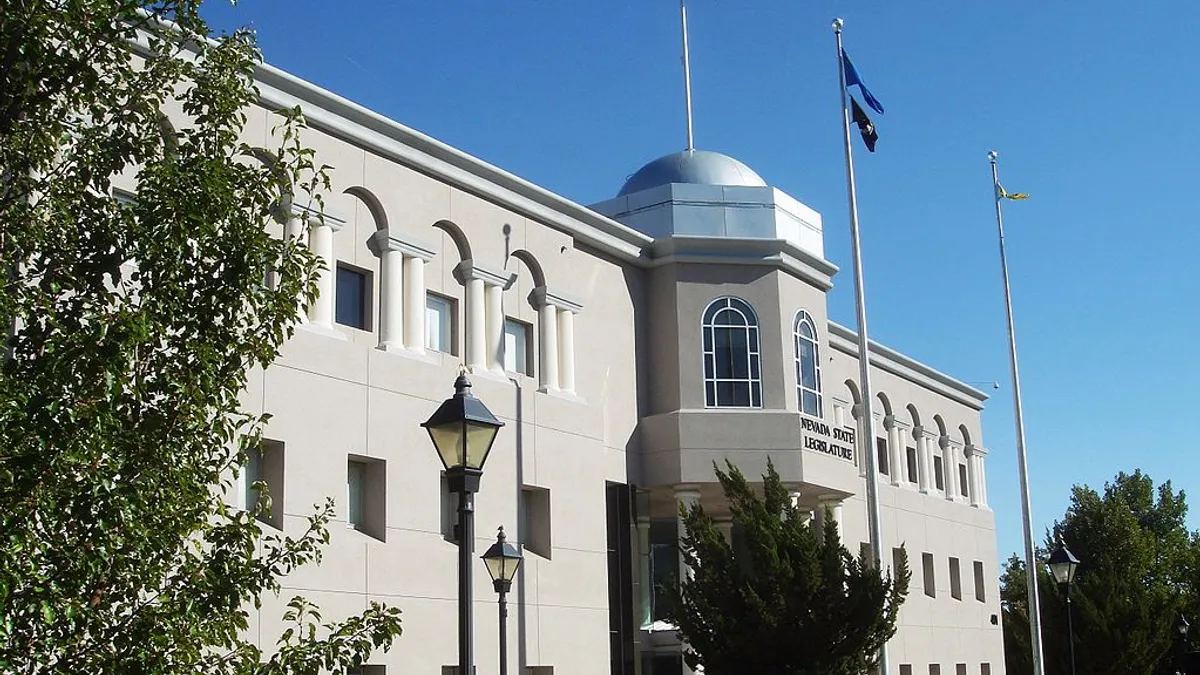Dive Brief:
- Nevada state Senators have passed three clean energy bills aiming to support advanced technologies, including Senate Bill 150 which would require meeting 1.5% of sales with energy efficiency from 2021-2025.
- Senate Bill 204 would direct state regulators to consider requiring utilities to purchase energy storage by Oct. 1, 2018. And Senate Bill 65, drafted by the governor's energy office, would revise how utilities prioritize dispatching resources, directing utilities to consider economic and environmental benefits in their Integrated Resource Plans.
- National clean energy trade group Advanced Energy Economy and state partner Clean Energy Project hailed the trio of unanimous votes, saying if passed into law the measures would help the state attract innovative companies and create more clean energy jobs.
Dive Insight:
The three bills will now head to the Nevada Assembly for consideration, with observers saying the measures will be "integral in shaping the new Nevada and cementing its place as a national leader on advanced energy."
The three bills establish studying a storage mandate, annual energy efficiency goals and to require utilities to consider environmental and economic costs in their long-term planning.
SB 204 would direct the Public Utilities Commission of Nevada to study a storage mandate for the state's utilities, and if it is determined cost-effective then regulators would establish annual requirements.
SB 150 would establish annual energy efficiency goals as well as performance-based mechanisms to reward utilities for meeting or exceeding the annual metrics. The benchmarks in 2018 would be 1% of all retail electricity sales, 1.2% in 2019, 1.4% in 2020, and 1.5% for years 2021-2025, with incentives for exceeding those levels.
Senate Bill 65, submitted by the Nevada Gov. Brian Sandoval's energy office, would revise the loading order in the state’s integrated resource plan "to consider economic and environmental benefits," according to Advanced Energy Economy. Currently, the order prioritizes resources that reduce energy costs and demand.
The spotlight settled on Nevada in 2015 during a rancorous debate over rooftop solar incentives, which resulted in the retail rate for net metering trimmed to nearly the wholesale rate. Backlash from the solar industry and its customers spurred Sandoval to form an energy task force to look into the decision. Since then, regulators partially restored the full net metering policy in Sierra Pacific Power's service territory.
But it appears Sandoval isn't done with his efforts to mold the state into a clean-energy friendly hub. Renewables advocates long complained utilities failed to quantify the full environmental benefits of renewable energy, particularly in regards to distributed generation. But SB Bill 65 appears to take those complaints into account and ensure utilities prioritize resources after considering economic and environmental benefits.















